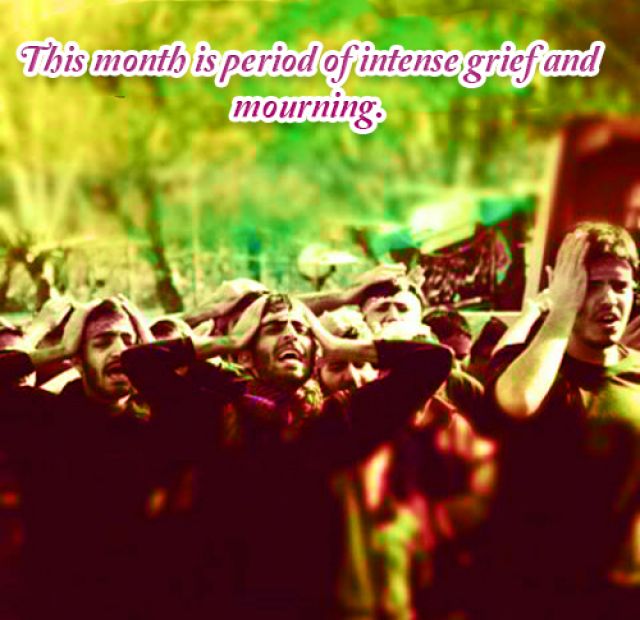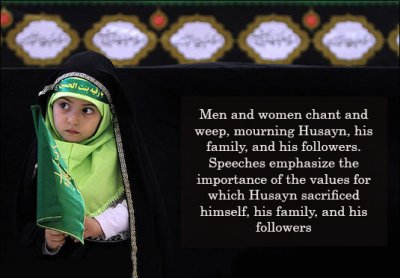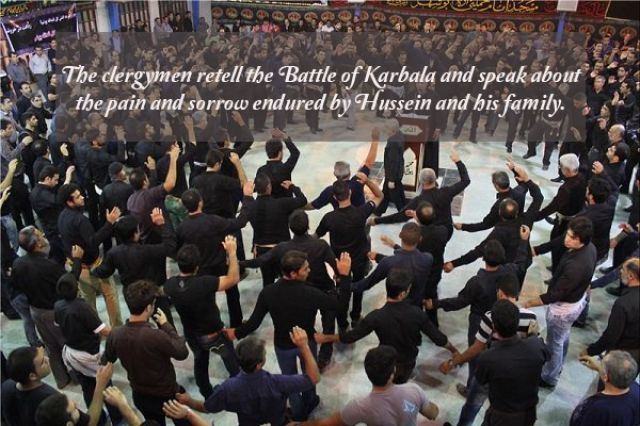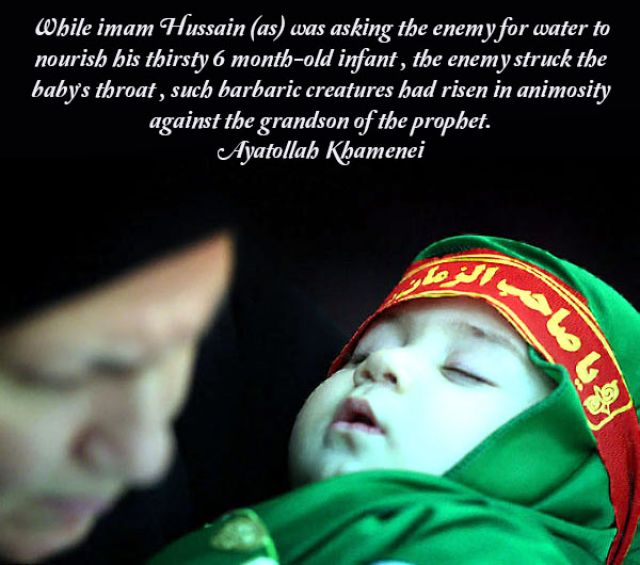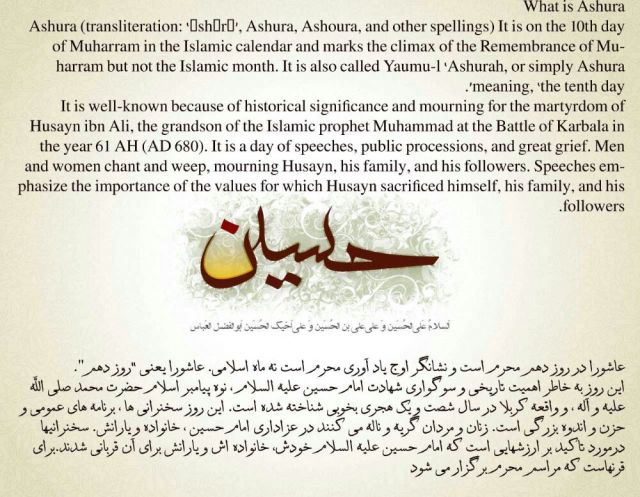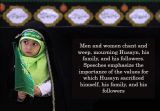
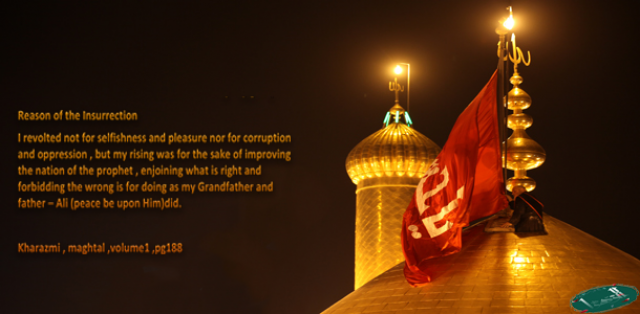 The Revolution’s Causes The motives for revolution were numerous. Some were direct grievances of the general people while others were ideological. The following were the most apparent: 1. There were many defects and drawbacks but the most urgent one was the attempt to distort Islamic concepts and ideals. This aspect was of extreme importance and preoccupied the minds of responsible Muslims at the time. The fabrication of Hadith was all too common, which had a poisonous effect on the lives of Muslims. This, was giving the Umayyads for a while a free hand to carry out their inhuman deeds and policies. The mask of religion which they used to hide their un-Islamic conduct was extremely dangerous. In the long run, this could have changed Islamic concepts of ruling and inverted social ideals. Thus stripping off this mask and exposing the true Umayad’s picture was of utmost necessity. 2. The State’s structure was built on an un-Islamic basis. Quraish was born to rule, Arabs were second class citizens, and non-Arabs constituted the base of the society’s pyramid. That was the general social picture of, the Muslim world under the Umayyads dynasty. Freedom of thought and expression were denied, When one dared to express an opinion contrary to that of the Umayyad’s, prison became his home, his property was robbed, and oven his life was at stake. 3. The Umayyads considered the Muslim world to be their own property. The aims (Zakat) and other Islamic dues were collected, but no-one knows or can question where that money went. Large gifts and donations were given to few cruel governors and tribal chiefs in order to secure their allegiance. Large sums of money were wastefully spent on racing, gambling, wine-making, and buying slave women to entertain high-class people in power. Hence, the majority of Muslims were left near starvation level while the ruling group all enjoyed the social and material privileges. 4. The Muslims had apparently got used to the un-Islamic rule of the Umayyads as time passed by. Their resistance slackened and some people began adjusting themselves to the new conditions. Hence, the revolutionary spirit of Islam began to disappear gradually from Muslims’ lives and thoughts. Therefore, a new stimulant to their souls was necessary to activate their lives and try to restore, Islamic conduct to the society.
The Revolution’s Causes The motives for revolution were numerous. Some were direct grievances of the general people while others were ideological. The following were the most apparent: 1. There were many defects and drawbacks but the most urgent one was the attempt to distort Islamic concepts and ideals. This aspect was of extreme importance and preoccupied the minds of responsible Muslims at the time. The fabrication of Hadith was all too common, which had a poisonous effect on the lives of Muslims. This, was giving the Umayyads for a while a free hand to carry out their inhuman deeds and policies. The mask of religion which they used to hide their un-Islamic conduct was extremely dangerous. In the long run, this could have changed Islamic concepts of ruling and inverted social ideals. Thus stripping off this mask and exposing the true Umayad’s picture was of utmost necessity. 2. The State’s structure was built on an un-Islamic basis. Quraish was born to rule, Arabs were second class citizens, and non-Arabs constituted the base of the society’s pyramid. That was the general social picture of, the Muslim world under the Umayyads dynasty. Freedom of thought and expression were denied, When one dared to express an opinion contrary to that of the Umayyad’s, prison became his home, his property was robbed, and oven his life was at stake. 3. The Umayyads considered the Muslim world to be their own property. The aims (Zakat) and other Islamic dues were collected, but no-one knows or can question where that money went. Large gifts and donations were given to few cruel governors and tribal chiefs in order to secure their allegiance. Large sums of money were wastefully spent on racing, gambling, wine-making, and buying slave women to entertain high-class people in power. Hence, the majority of Muslims were left near starvation level while the ruling group all enjoyed the social and material privileges. 4. The Muslims had apparently got used to the un-Islamic rule of the Umayyads as time passed by. Their resistance slackened and some people began adjusting themselves to the new conditions. Hence, the revolutionary spirit of Islam began to disappear gradually from Muslims’ lives and thoughts. Therefore, a new stimulant to their souls was necessary to activate their lives and try to restore, Islamic conduct to the society.
 نظر دهید »
نظر دهید » 
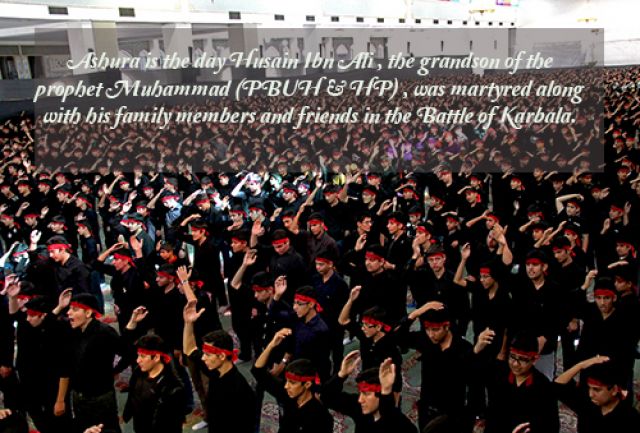 As the enemies had the body of Imam Hussain (as) surrounded, each took their turn stabbing his pure defenseless body, laid out on the ground; thus, while viciousness, revengefulness, and feral behavior swept through the battle field, in the camps of Imam Hussain (as) the spirit of remembrance in God, the human quality of tenderness, and intense emotions prevailed. All women and children—no one but women and children were left in the camps, with the exception of the only surviving male Ali Ibn Hussain (as) who was ill—were worried about Hussain Ibn Ali (as) and what would transpire next. They came out of their tents, and proceeded to the area where they believed Hussain Ibn Ali’s (as) body was seized; it has been narrated that the women departed from the camp. You have probably seen or heard how Arab women weep and mourn: it is still common among Arab women to mourn painfully upon the death of their loved ones; they beat their own faces, and pull at their hair; they mourn in such an intense manner. Well, these women had lost a loved one, a man like Hussain Ibn Ali (as). Hazrat Zeinab was heading the women towards the sight of his martyrdom. When she arrived, she spotted the body of her beloved brother on the blistering grounds of Karbala. Instead of revealing some sort of reaction, or grievance, she went to the corpse of her beloved Hussain (as), and called on her grandfather (pbuh). She said, “O’ the Messenger of God, peace be upon you! Take a look at your Hussain who is covered in blood, with his body hacked up.” O’ my dear grandfather! O’ Great Prophet, look towards the hot desert of Karbala. This is your Hussain who is now covered in blood and dust. Then, as it has been narrated, Zeinab (as) reached her hands beneath the body of Hussain Ibn Ali (as) and called out, “O’ God! Please accept this sacrifice from the progeny of Muhammad (saw)!” Ayatollah Khamenei, 9/27/1985
As the enemies had the body of Imam Hussain (as) surrounded, each took their turn stabbing his pure defenseless body, laid out on the ground; thus, while viciousness, revengefulness, and feral behavior swept through the battle field, in the camps of Imam Hussain (as) the spirit of remembrance in God, the human quality of tenderness, and intense emotions prevailed. All women and children—no one but women and children were left in the camps, with the exception of the only surviving male Ali Ibn Hussain (as) who was ill—were worried about Hussain Ibn Ali (as) and what would transpire next. They came out of their tents, and proceeded to the area where they believed Hussain Ibn Ali’s (as) body was seized; it has been narrated that the women departed from the camp. You have probably seen or heard how Arab women weep and mourn: it is still common among Arab women to mourn painfully upon the death of their loved ones; they beat their own faces, and pull at their hair; they mourn in such an intense manner. Well, these women had lost a loved one, a man like Hussain Ibn Ali (as). Hazrat Zeinab was heading the women towards the sight of his martyrdom. When she arrived, she spotted the body of her beloved brother on the blistering grounds of Karbala. Instead of revealing some sort of reaction, or grievance, she went to the corpse of her beloved Hussain (as), and called on her grandfather (pbuh). She said, “O’ the Messenger of God, peace be upon you! Take a look at your Hussain who is covered in blood, with his body hacked up.” O’ my dear grandfather! O’ Great Prophet, look towards the hot desert of Karbala. This is your Hussain who is now covered in blood and dust. Then, as it has been narrated, Zeinab (as) reached her hands beneath the body of Hussain Ibn Ali (as) and called out, “O’ God! Please accept this sacrifice from the progeny of Muhammad (saw)!” Ayatollah Khamenei, 9/27/1985
 2 نظر »
2 نظر » 
Of course this is easier said than done. What Imam Hussein (a.s.) did was an extraordinary feat. That is to say, the dimensions of his action are far more than what we estimate. We usually ignore aspects and details. Once I spoke about Imam Hussein’s (a.s.) patience. His patience was not limited to enduring thirst or seeing his companions being killed. These things are relatively easy to tolerate. The kind of patience that is difficult to practice is to listen to influential, aware and respectable people who keep creating doubts and telling you that what you are doing is dangerous and wrong. Who did those things? People like Abdullah Ja’far, Abdullah Zubair and Abdullah Abbas. These prominent figures of that time were constantly telling Imam Hussein (a.s.) not to do what he was doing. If it were somebody else, somebody who did not have that determination and stable character, he would have thought, “Well, I did my duty. These people are talking like this and the world is acting like that, so I should just say what I am supposed to say and do nothing else.” A person who decides to stand up against such statements, such temptations, such doubts and such efforts to bend sharia and is not dissuaded from continuing his path - such a person is the one who can give rise to such a great transformation. In this regard our magnanimous Imam (r.a.) was similar to the Lord of the Martyrs. I explained this in another meeting and I do not want to go into the details now. This was how Imam Hussein (a.s.) acted as a guardian.
 4 نظر »
4 نظر » 
 What is Muharram?
What is Muharram?
Muharram (Arabic: محرم) It is the first month of the Islamic calendar. Instead of joyous celebration, Muslims mark the beginning of the New Year by taking up the black attire of sorrow and participate in mourning gatherings in which the sacrifices of Husain and his companions are commemorated. It is one of the four months of the year in which fighting is prohibited. Since the Islamic calendar is lunar, Muharram moves from year to year when compared with the Gregorian calendar.
Muharram is so called because it was unlawful to fight during this month; the word is derived from the word ‘haram’ meaning forbidden. It is held to be the most sacred of all the months, excluding Ramadan.It is the same month when Husayn, the grandson of the Prophet Muhammad, was brutally massacred in Karbala alongside his family and friends in the year 680 CE/61 AH
Their martyrdom is a sad day for all Muslims, especially the Shi’a, who hold mourning ceremonies to recall the righteous virtues for which the valiant martyrs stood and the grave calamities that they thus had to bear. The commemoration of this brutal massacre (Battle of Karbala) begins on the first day of Muharram and reaches its climax on the 10th of Muharram, the day of the battle, known as Ashurah and continues for 40 days or 69 days.
موضوعات: عاشورا
 نظر دهید »
نظر دهید » 
روزهای گرم سال هشتاد هجری است . با این حال بچه ها به دور صادق(ع) هشت ساله جمع شده اند و می خواهند بازی را شروع کنند. همه به عنوان شاگرد روی زمین خاکی نشسته اند و صادق(ع)نیز به عنوان استاد بالای سرشان ایستاده. در گرما گرم آن روزها به لطف وجود کلاسهای درس و بحث امام محمد باقر(ع) علم نیز از حرارت بالایی بر خوردار بود.استاد کوچک شروع به وصف میوه ای کرد و از بچه ها خواست تا نام میوه را بگویند. بعد از کلی پچ پچ و سوال یکی از بچه ها حدسش درست از آب در آمد و جای استاد را گرفت. اینبار استاد جدید، بعد از کلی فکر کردن، سخت ترین میوه را در نظر گرفت و شروع به توصیف کرد.ولی غافل از اینکه صادق (ع)باهوشتر از این حرف هاست، با شنیدن نام میوه آنهم به این سرعت جا خورد، با اینحال به روی خودش نیاورد و گفت: نه درست نیست. صادق (ع) میدانست حدسش درست بوده ولی اهل دعوا و بزن بزن نبود. متاثر شد و عقبتر ایستاد. بعد هم بغضش ترکید و شروع کرد به گریه کردن. اینبار از دوستان جدا شد و به سمت خانه به راه افتاد. این از آن سیاستهای صادق(ع)بود تا بتواند بدون زدو خورد توجه بچه ها را به خود جلب کند. بازی بچه ها از آن صفا و جذابیتی که داشت افتاد و همگی با گردنهای گج برای منت کشی به سراغ صادق(ع) رفتند. او عذر خواهی دوستان را پذیرفت و با یک شرط قبول کرد که به بازی برگردد. شرطش این بود که از این به بعد کسی دروغ نگوید.
 نظر دهید »
نظر دهید » 
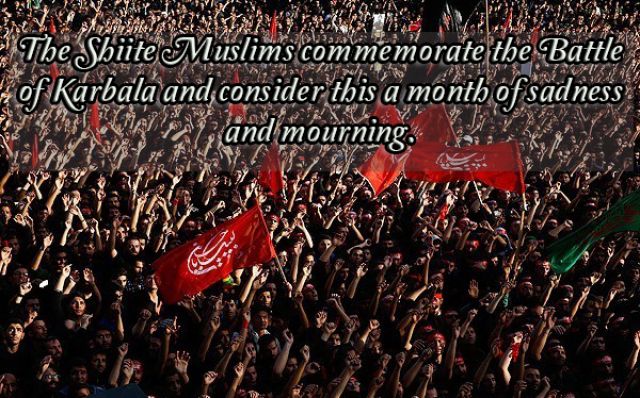 Muharram is the first month of the Islamic calendar.
Muharram is the first month of the Islamic calendar.
The Shiite Muslims commemorate the Battle of Karbala and consider this a month of sadness and mourning.
Can you tell me a little about Ashura?
Ashura is the day Husain Ibn Ali , the grandson of the prophet Muhammad (PBUH & HP) , was martyred along with his family members and friends in the Battle of Karbala.
This month is period of intense grief and mourning.
Clergymen give sermons with themes of Hussein’s personality and position in Islam, and the history of his uprising.
The clergymen retell the Battle of Karbala and speak about the pain and sorrow endured by Hussein and his family.
Many people congregate together in mosques for chest beating and mourning.
They show their devotion to Imam Hussein by Lamenting and grieving to the tune of beating drums, sound of bugles and chants of “Ya Hussein.”
Some people sacrifice a sheep in Ashura.
موضوعات: عاشورا
 4 نظر »
4 نظر » 
What is Ashura ?
Ashura (transliteration: ‘Āshūrā’, Ashura, Ashura, and other spellings) It is on the 10th day of Muharram in the Islamic calendar and marks the climax of the Remembrance of Muharram but not the Islamic month. It is also called Yaumu-l ‘Ashura, or simply Ashura meaning, ‘the tenth day’.
It is well-known because of historical significance and mourning for the martyrdom of Husain ibn Ali, the grandson of the Islamic prophet Muhammad at the Battle of Karbala in the year 61 AH (AD 680). It is a day of speeches, public processions, and great grief. Men and women chant and weep, mourning Husain, his family, and his followers. Speeches emphasize the importance of the values for which Husain sacrificed himself, his family, and his followers.
موضوعات: عاشورا
 2 نظر »
2 نظر » 
If a homes electricity goes out for 2-3 hours during the summer time, parents won’t be concerned about themselves getting heat-sick; they won’t be distraught by their own sweat and frustration with the heat. But when a mother sees her child restless, finding it difficult to sleep due to the extreme heat, her heart burns in despair.
Now imagine the events on the afternoon of Ashura (tenth day of Muharram) in the camps of Imam Hussain (as), his family and companions, under the scorching heat, all so thirsty. For this little infant some abstained from drinking out of the remaining water supply, in that scorching heat. Certainly they weren’t thinking about themselves when they watched little Ali Asghar.
I assume the main reason Imam Hussain (as) brought Ali Asghar to the enemy’s army, to ask for water in order to nourish the infant—while there was very little hope that these lupine enemies would have sympathy and give the baby water– was that Imam Hussain (as) had no other option and there was nothing he could do to help. When the Imam (as) moved about the tents, he noticed the air was filled with anguish and much commotion, this small infant’s thirst, hunger and distress had moved everyone. Hussain Ibn Ali (as) had to take the baby in his arms—although there was very little chance the enemy would give the baby a cup of water to sooth his thirst.
Nevertheless, Hussain Ibn Ali (as) held the infant, then lifted him up for all to see. The baby’s conditions were so heart-rending that he would certainly move anyone—no matter how cold hearted—to feel sadness for him.
Imam Hussain (as) sought mercy purposely. It has been narrated correctly that he said, “even if you don’t have mercy towards me, have mercy towards this little baby.” A father would do so for his little baby at a time of distress. Hussain Ibn Ali’s (as) fatherly instincts allowed him to ask the enemy for water in order to save the life of this little infant. At that moment Hussain Ibn Ali (as)—probably in agony, gloom, and distress—raised the baby in his hands and was talking to the enemy when he felt something strange! He noticed his baby, who was drooping and still, due to thirst and hunger, could no longer hold his head, his head hung to one side. Suddenly he started floundering in his father’s hands.
Imam Hussain (as) looked at him; he saw the enemy’s arrow had stricken the baby in the throat and blood was flowing from Ali Asghar’s throat. May God curse the oppressors!
Ayatollah Khamenei; September 12, 1986

موضوعات: عاشورا
 1 نظر »
1 نظر » 